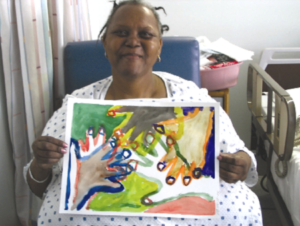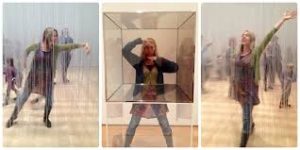This week’s EBN Twitter Chat is on Wednesday 19th October between 8-9 pm (BST) and will be hosted by Dr Helen Noble (@helnoble) lecturer in Health Services Research, Queens University Belfast.
Participating in the Twitter chat requires a Twitter account; if you do not already have one you can create an account at www.twitter.com. Once you have an account, contributing is straightforward. You can follow the discussion by searching links to #ebnjc, or contribute by creating and sending a tweet (tweets are text messages limited to 140 characters) to @EBNursingBMJ and add #ebnjc (the EBN Twitter chat hash tag) at the end of your tweet, this allows everyone taking part to view your tweets.
Healthcare benefits greatly from collaboration with the arts, as this renders clinical practice truly inter- and multidisciplinary in the broadest of terms. An additional benefit is in enhancing healthcare education in challenging areas such as fostering empathy. The collaboration between medicine and the arts and humanities is rapidly becoming established as a powerful and fruitful alliance in improving healthcare delivery, education and outcomes See examples at http://www.artscouncil.ie/Arts-in-Ireland/Arts-participation/Arts-and-health/ and http://ukhealthcare.uky.edu/arts/. That said, the relationship between arts and healthcare, although long recognised, remains poorly defined. Whilst both areas might benefit from collaboration and partnership, with potential to promote well-being and improve quality of life, the interaction between healthcare and arts provides wide application, yet potentially poor focus. The meeting of arts and healthcare offers great potential for new ways of understanding how care can be provided to patients coping with chronic diseases such as renal, lung and heart disease or cancer. The challenge is to obtain sufficient evidence to support practical engagement in terms of arts based interventions.
The management of care for people with long-term conditions, should be proactive, holistic, and patient-centred, and should support a co-ordinated and integrated service delivery model that requires an active role for service users, with collaborative and individual care planning at its heart. A partnership model where patients take key roles in determining their care and support needs is essential. But is it possible to nurture the concept of service user and carer involvement in the use of the arts as a therapeutic medium and a mechanism for supporting the empowerment of service users? Arts in healthcare brings to bear a significant evidence base which demonstrates the benefits of the arts for individuals living with chronic and life-limiting conditions, such as service users with end-stage renal disease. Cultural activities and creative engagement, such as engagement in music, art, dance, or creative writing promote a sense of well-being and improvement in quality of life. Health outcomes may be positively affected. Can the arts can provide a way of seeing, engaging and expressing in a novel, meaningful, and hopefully impactful manner?
Academics at Queens University Belfast have been working closely with renal clinicians and people with renal disease to develop a programme of research with the ultimate aim of improving the physical and psychological quality of life of those with renal disease. A more recent collaboration has been between academics, service users, clinicians, and artists. Many of the staff and service users have artistic interests including music, poetry, glass-making, photography and dance. Arts and health, as yet an emerging field, has the potential to benefit service users with kidney disease and a Renal Arts Group has been established. The collaboration was established when a patient contributed a selection of poetry written about his life with kidney disease. This was integrated into a film to be used as an educational tool for renal staff. The film is being shown at the Northern Ireland Festival of Social Science in Nov 2016. The Renal Arts Group was awarded ESRC Northern Ireland Festival of Social Science funding for this public event titled: ‘Waiting for a transplant on dialysis: living while dying with kidney disease’ and has also received a small grant from the British Kidney Patient Association to pay for service user transport costs and refreshments at Renal Arts Group meetings.
Hopefully you can join the Twitter chat and help us answer some of the questions posed in this blog. We look forward to you participating.

